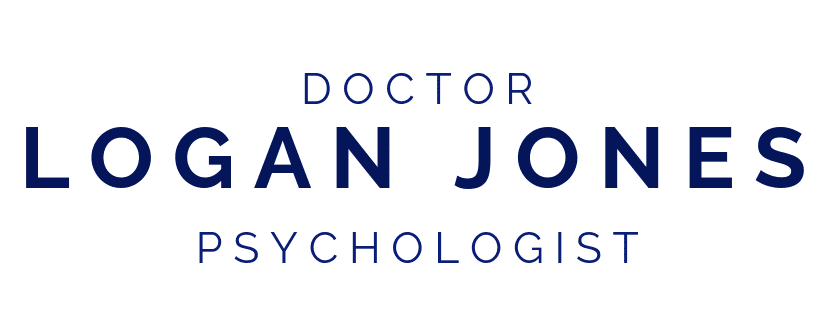3 Reasons to Consider THERAPY to Enhance Your Life
3 Reasons To Consider THERAPY to Enhance Your Life
As a therapist, nothing makes me happier than seeing the topic of mental health become less stigmatized and more normalized on a global scale. Each time I sit with a client, I devote my energy to creating channels for people to reclaim power over their lives through a commitment to personal development. This month, however, is especially important because May marks National Mental Health Awareness Month in the United States. To that end, I invite you to regard therapy as an amazing option for bettering your relationship with yourself, your loved ones, and the world around you.
Therapy is a tool by which we liberate ourselves from the hell that life can sometimes be by taking responsibility for our flaws, strengths, and behaviors.

The choice to start seeing a therapist is a decision to invest in your own elevation. It demonstrates the desire to become a proactive agent and author in your own story.
Here are a few ways in which therapy can directly enhance the quality of your life:
REASON FOR THERAPY #1: Empower yourself by taking ownership of your weaknesses
As the saying goes, “you can’t heal what you don’t reveal.” In the same way that you can’t recover from a physical injury without treatment, you can’t expect to attract wellness if you don’t treat the underlying issues that are holding you back. Therapy helps bring deep-rooted wounds and patterns to the surface in order for them to be named, addressed, and eventually remedied.
Therapy helps you to realize that you are not a “problem person,” but a person with problems. Once you begin to understand that what you perceive as your problems, flaws, or weaknesses are simply things that you have rather than things that define you, they lose their power over your life. When you realize this, you gain power as a person who can make positive changes. Essentially, if we acknowledge our role as the problem-maker, then we are also the problem-solver. We are both the question and the answer, which is an empowering stance to assume.
REASON FOR THERAPY #2: Receive true support from a trained, unbiased professional.
Too often we think that we have to shoulder the burdens of the world all by ourselves. Not only is this unhealthy, it’s impossible. As humans, it is natural and necessary to lean on others for support. Often, however, the people around us are not equipped, or responsible, for the emotional work we have to do to take care of ourselves. Finding the right therapist is liberating (and critical) because you are able to tap into the support of someone who is trained to listen, respond, and instruct, without taking on or being overcome by the weight of your emotional baggage. Therapy is a judgement and guilt-free zone of safety between client and therapist, and provides the space we all deserve for true healing.
REASON FOR THERAPY #3: Establish a routine based around self-care and personal development.
Everything about therapy is an extremely personal choice, from picking the right therapist, to deciding how to use the time in sessions. Whatever you decide, however, therapy can ultimately become a beautiful part of your self-care routine. Especially after a traumatic incident or perhaps when you first start seeing a professional, it can be helpful to go on a weekly basis. In these cases, your therapy sessions become a healthy anchor in the midst of chaos; knowing you have your session to look forward to every week can ground you and help you to keep perspective. It also drives home the point that self-care is a lifetime responsibility. Some people choose to see their therapist less often as they feel themselves gaining a better handle on things. However, just the act of having seen a professional on a weekly or bi-weekly basis for a length of time solidifies the idea of active self-care as a regular part of their routine.
Therapy is by no means the only method to take care of your mental health, but in the spirit of Mental Health Awareness Month, I encourage you to consider the option. You should never feel ashamed or embarrassed about seeking professional help—life is hard, and we all benefit from sharing our struggles. Remember, a crisis is not an “end,” but an opening in consciousness. It is a time for things to be addressed and reworked, and this is precisely what therapists like myself aim to help our clients do. Seeing a therapist can be a beautifully enriching experience and you may find yourself wondering why you didn’t consider it earlier.
ARE YOU CONSIDERING SEEING A THERAPIST FOR THE FIRST TIME, OR DO YOU SIMPLY WANT TO LEARN MORE ABOUT HOW THERAPY CAN BE A GIFT IN YOUR LIFE? Contact Dr. Logan Jones at 646.798.8354 for a complimentary phone consultation.
Dr. Logan Jones is a mental health therapist in Manhattan. He provides therapy for depression, anxiety and trauma to help people feel more confident, grounded, and self-assured. He understands that life happens, and that love helps, and he is here to help you tap into and practice unconditional love for yourself. His practice is located near Flatiron, Chelsea, NoMad, Union Square and the West Village.
Follow Dr. Logan Jones on Instagram for more daily inspiration: @drloganjones

No matter what you’re going through, whether depression, anxiety, or PTSD, there is hope. If you are looking for therapy in NYC his psychotherapy practice is located in central Manhattan near Flatiron, West Village, NoMad Chelsea, or Union Square.


